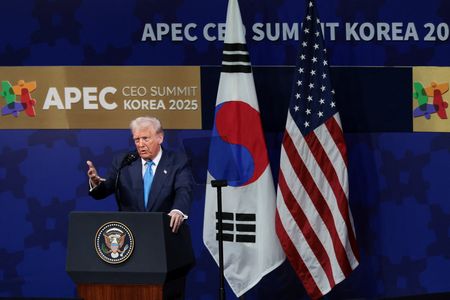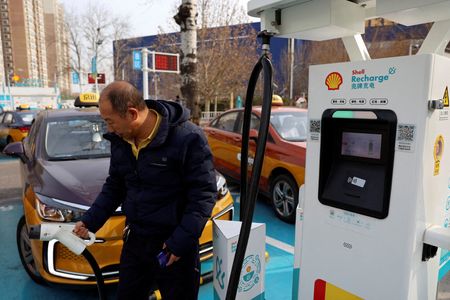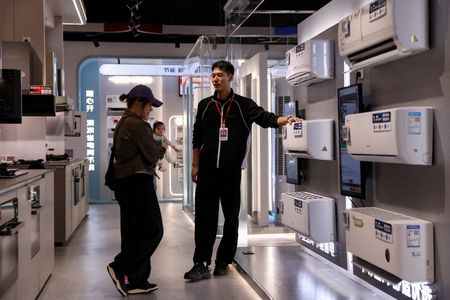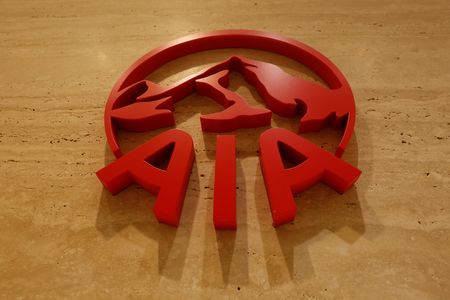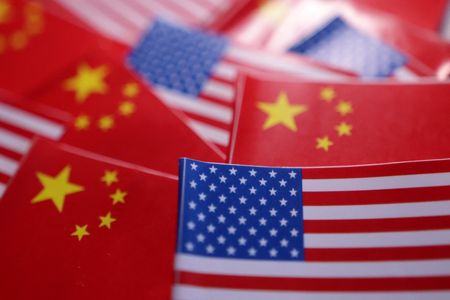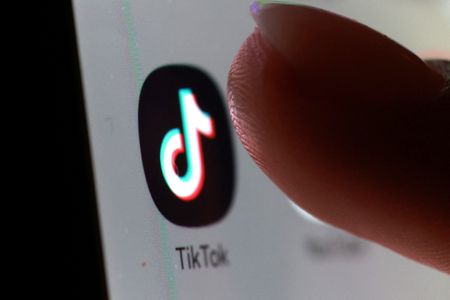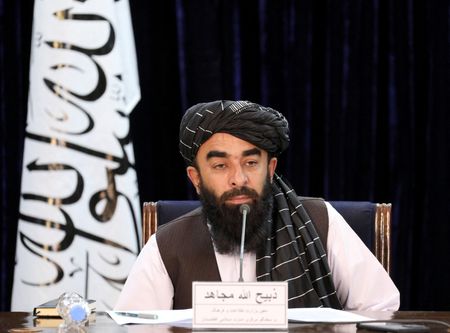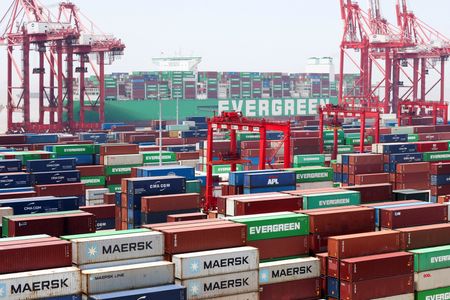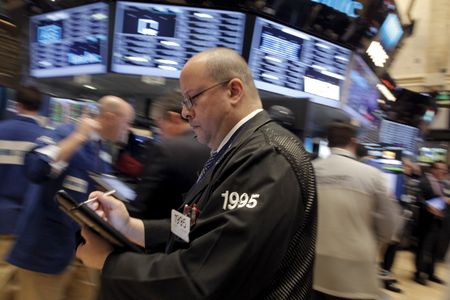By Cynthia Kim, Yena Park and Youn Ah Moon
SEOUL (Reuters) -President Donald Trump’s trade pact with South Korea could deal a major blow to the won when cash starts flowing out of the country to cover investment commitments in the U.S., though the pact will likely be a boon for the Kospi.
In exchange for lower tariffs – duties on South Korean cars and auto parts are expected to fall to 15% from 25% – South Korean negotiators agreed on Wednesday to inject $350 billion in new investments into the U.S.
In an effort to avoid disruptions in the dollar-won market, the two countries agreed to split the fund into two components. A first part will be $200 billion in cash, paid in installments, which will be capped at $20 billion a year.
For a tech- and export-reliant economy like South Korea, the steady outflow of funds would mean squeezed liquidity in the local market, especially if exports and consumption slowed.
The remaining $150 billion was earmarked for cooperation in shipbuilding.
On Wednesday, South Korean chief policy advisor Kim Yong-beom said the investments would be funded with operating income from the country’s foreign assets.
“It was a better-than-expected deal for Korea, especially in that uncertainties surrounding the financing of the investment have cleared,” said Moon Hong-cheol, an economist at DB Securities.
“That said, we now know that there’s going to be steady, long-term outflows, so that should be taken into account, which will work to limit short-term gains in the won.”
The Korean won is known for being closely monitored by local authorities, reflecting a vigilant mindset that was forged after financial traumas like the 1997 Asian Financial Crisis, during which the won lost half of its value.
The won has been one of Asia’s worst-performing currencies since last year as a growing appetite among local retail investors and the national pension fund for U.S. stocks has driven it lower against the dollar.
Unlike the Hong Kong dollar or the pound, most foreign banks must trade the won through the two Korean brokerages for spot trading.
Citigroup economist Kim Jin-wook said over the next six months to a year, the won could weaken further to 1,450 per dollar.
“The Korean private sector’s potentially lower conversion of the dollar export proceeds to the won may generate won depreciation risks in the coming years,” Kim said, explaining that returns from corporate investments abroad are unlikely to be brought back home, which will weaken the won.
The National Pension Service (NPS) has a hefty and growing appetite for overseas equities and bond investments, which it can feed only by selling won for dollars.
The NPS purchased about $27 billion worth of overseas securities through August this year, about double what it bought in the year-earlier period, according to data from the Bank of Korea.
South Korea’s retail investors are snapping up dollar-denominated assets just as quickly. They bought $36 billion in overseas securities in the year-to-date period that ended in September, also doubling from a year earlier.
“We’re talking about $20 billion of FX outflows a year and details on financing and implementation of that still needs to be confirmed,” said Min Kyong-won, an economist at Woori Bank. “And companies are obviously heading overseas with their investments, so all this will work to weaken the won.”
The won initially gained with the announcement, but is down 0.5% against the dollar at 1,427.80 as of 0560 GMT.
CHIPS, AUTOS
South Korea’s benchmark Kospi, up 71% this year, reached a new record high as soon as local markets opened on Thursday. Shipbuilding and auto shares surged on the news.
According to chief policy advisor Kim, the two countries agreed to apply tariff levels on chips that are “not disadvantageous compared to” the levies on their competitors in Taiwan, though he did not provide details.
South Korean manufacturers of wood products and pharmaceuticals will face the lowest tariffs, while aircraft parts and generic drugs will face zero tariffs.
On Thursday, shares of Hyundai Motor surged more than 12% before closing up 2.71%.
Shipbuilder Hanwha Ocean jumped 6.9%, while Samsung Electronics and SK Hynix gained 3.6% and 1.8%, respectively.
“The deal removes a major overhang on the economy and the local markets,” economist Kathleen Oh at Morgan Stanley said.
“(The 15% levy) improves Korea’s price competitiveness versus Japanese and European automakers.”
J.P. Morgan said the Kospi would rise well above the 5,000-point level within the next 12 months, with “a bull case upside to 6,000,” led by memory chips, financials, defense firms and shipbuilders.
The Kospi notched another record closing by rising 0.14% to 4,086.89 on Thursday.
(Reporting by Cynthia Kim; Editing by Thomas Derpinghaus)

